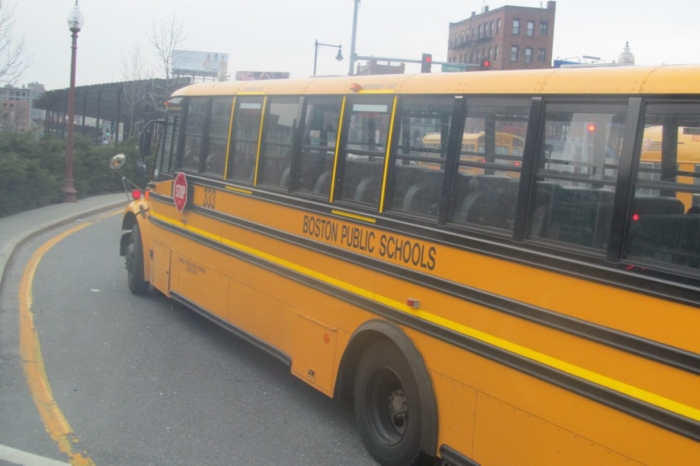Time for State Action on Troubled Boston Schools
Originally seen in The CommonWealth on September 30, 2021
Elected and appointed school committees have failed students for too long.
Former State Senate President Tom Birmingham often describes the centerpiece of the landmark 1993 Education Reform Act he co-authored as a massive infusion of state dollars into public schools in return for high standards and accountability for all. There is perhaps no better example of just how far back into the rear-view mirror accountability has faded than the Boston Public Schools.
The most recent BPS headlines are about Superintendent Brenda Cassellius working without a valid state superintendent’s license after she failed to take the test required to renew her license, but this is just the latest indignity. Yet as the district continues to fail its 54,000 students and their families, there’s barely a mention of holding the system responsible for its deficiencies. It’s long past time for that to change.
Few people know about a state review of BPS published last year, because it was released in March amid the initial wave of COVID-19 lockdowns, but the report is devastating. Graduation rates are down, the achievement gap between Black and White students has doubled, and the performance of Latinos trails even further behind. To make matters worse, the review found that the district was promoting segregation by funneling students with disabilities and language barriers into specific schools.
More than 30 percent of the system’s students attend schools ranked in the bottom 10 percent statewide, and the state found no clear, consistent strategy for improving these schools.
Things certainly don’t appear to have gotten any better in the 17 months since the review was published, and learning loss from the pandemic is impacting an entire generation of students, especially those most at-risk.
Last year BPS botched the calculation of student grade point averages, resulting in some students improperly being offered invitations to the city’s sought-after exam schools, while others who had earned invitations were denied.
Last month a federal district court judge took the exceedingly rare step of withdrawing his earlier opinion upholding the district’s exam school admission plan, because he believed he had been “misled” by the omission of racist text messages from two school committee members who later resigned when the messages were made public. The texts came on the heels of the resignation of the committee’s chairperson after he muttered derogatory comments about Asian names into a live microphone.
Yet after all this, when state Commissioner of Elementary and Secondary Education Jeff Riley said he was “exploring the possibility” of temporarily freezing some of the $400 million in federal funding earmarked for BPS, members of the Massachusetts congressional delegation immediately released a statement opposing the move.
Similarly, when the scathing 291-page state audit of the BPS led to speculation about state intervention, Boston Teachers Union president Jessica Tang told the Boston Globe that the “state has no grounds to say it should run the Boston schools that it has starved for so long.” Annual per pupil funding at BPS is currently north of $23,000. Massachusetts has among the best-funded public schools in the country, and BPS is among the best-funded in Massachusetts.
There is ample evidence that the money is not well spent. School bus problems again marred the opening of school this year, yet as of 2019, Buffalo was the only school district that paid more on a per-student basis for transportation.
And things are getting worse, not better. Yet BPS and its supporters continue to fight reforms like tying school funding to the implementation of proven policy changes.
Hatred for Boston’s charter public schools, which a Stanford University study found were doing more to close achievement gaps than any other group of public schools in the country, is fanatical. METCO, which allows students in Boston and Springfield to attend suburban public schools, is another successful program, but it hasn’t been expanded in years.
Given the failures of both appointed and elected school boards, perhaps the time has come to have the state Department of Elementary and Secondary Education appoint the members of the Boston School Committee.
Patience might be warranted if the Boston Public Schools were improving. But we have waited for decades, and they are only getting worse. Holding adults in the system accountable was a cornerstone of the Education Reform Act. If not now, when?
Charles Chieppo is a senior fellow and Jamie Gass is the director of the Center for School Reform at Pioneer Institute, a Boston-based think tank.



